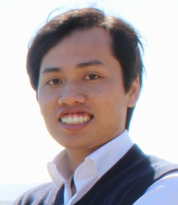Graden avlegges ved Høgskolen i Sørøst-Norge (HSN), Fakultet for teknologi, naturvitenskap og maritime fag.
Om avhandlingen
Currently, most electronic cameras have integrated tunable lenses in order to achieve autofocus function. This enables camera users to capture an instant moment with the highest quality. Typical methods to implement tunability are to change the position of the optical lens and/or to change its shape. To change the position or shape of the lens an actuator is used. Currently, magnetic actuation is one of the main approaches used for tunable lens desig n. However, these magnetic actuators have many disadvantages in terms of low miniaturization potential, low focusing speed and high power consumption.
n. However, these magnetic actuators have many disadvantages in terms of low miniaturization potential, low focusing speed and high power consumption.
Piezoelectric materials are advanced functional materials that can convert mechanical energy into electrical energy and vice versa. Actuation based on piezoelectric materials have potential to overcome the disadvantages of magnetic actuation. In Norway, Polight AS, an industry partner in our project, has patented a piezoelectric-based tunable lens. Currently, this tunable lens has been recorded as the fastest focusing lens i.e., within 1 millisecond focusing time. One research goal of the present PhD work is to increase the strength of the piezoelectric actuator so that the focusing range of the tunable lens is increased.
To increase the strength of the actuators, it is proposed to use an interdigital electrode (IDE) system to drive the piezoelectric material. However, due to the complex electrode configuration of the IDE, rigorous models and characteristic methods for the piezoelectric actuators with IDE are not yet established. Therefore, it is a need for greater understanding of the properties of the IDE actuators. Our study thus focuses on modelling, simulation and characterization of piezoelectric actuators using the IDE configuration. This thesis provides more accurate models and characterization technique for the IDE actuators. The established models can also be used in design, optimization and characterization of other microsystems such as sensors and generators.